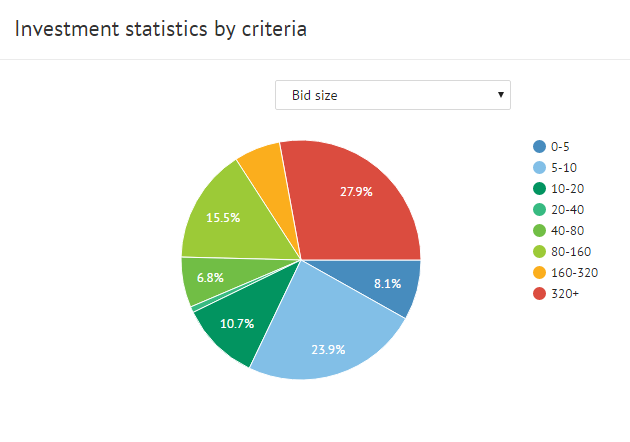The personal statistics page is a great way to get a quick glance at the characteristics of your investments. Previously we wrote in this series about how to compare your returns with other investors and how to track the performance of your defaulted loans. In this post we’ll explore the investment statistics by criteria panel.
The customizable pie chart provides a quick visual for users to understand five major aspects of their investments. With one click you can look at the composition of your portfolio by loan status, loan purpose, loan rating, country and bid size.
Loan status
The loan status option is a risk measurement tool. Many investors with a wide spread of loan funding will want to monitor the proportion of their assets held in loans that are not current. For some, too many past due obligations may be an uncomfortable level of exposure to defaults.
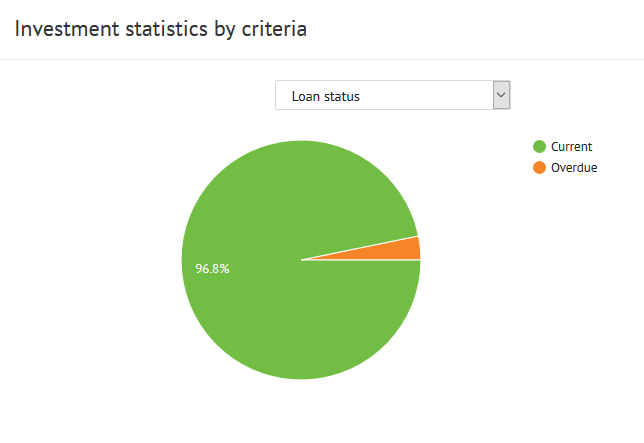
Loan purpose
Loan purpose is more of a general view. This information gives a sense of what life events and trends an investor is funding. Many borrowers choose “other” which can limit the feedback of this choice.
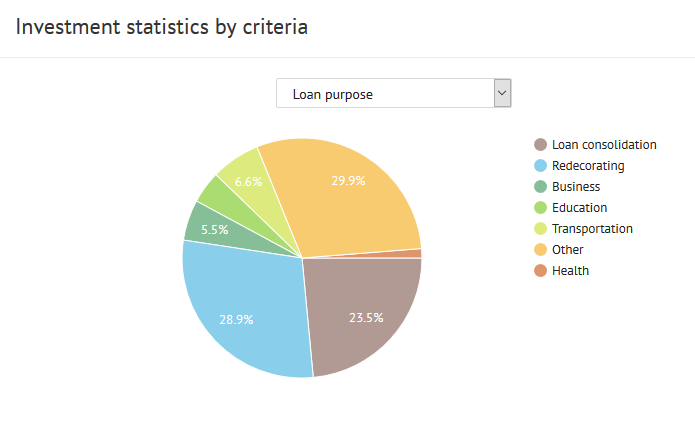
Loan rating
The loan rating is, for many, is the most important criteria. Investors choose a conservative, moderate, or aggressive style when using the Portfolio Manager tool. However, over time, it’s possible for lower ratings to appear as a user gradually invests more. In early October we addressed the fact that sometimes conservative portfolio can invest into HR loans. The loan rating statistic helps users monitor events like this and their influence.
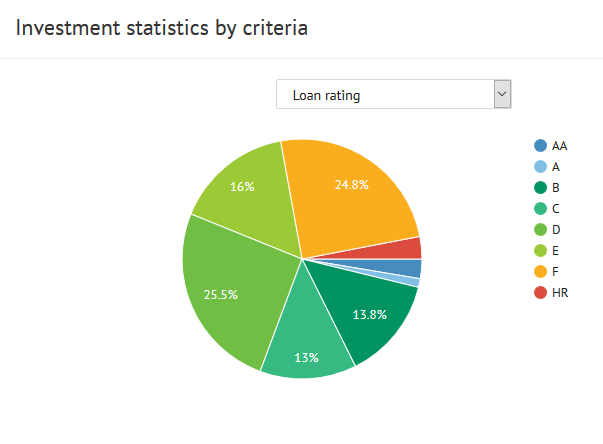
Country
Choosing to view holdings by country will be helpful in understanding how the news in our monthly portfolio performance articles will influence their investments. Spain, Estonia and Finland each have different profiles regarding returns and recoveries. Use this feature to learn if your portfolio represents your original intent.
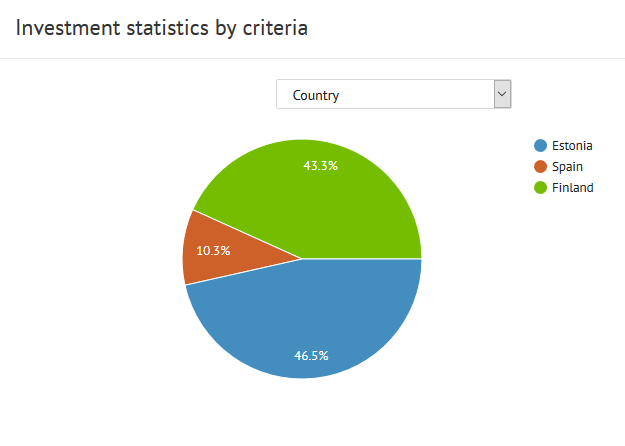
Bid size
Finally, viewing investments grouped by bid size shows the relative size of the loans in the total portfolio. Some investors may prefer the diversification of a greater number of small loans rather than a less diversified portfolio of greater amounts held by fewer people. For larger portfolios there are usually more bid size groups because as portfolios grow the bid sizes also increase while keeping the set diversification level.
